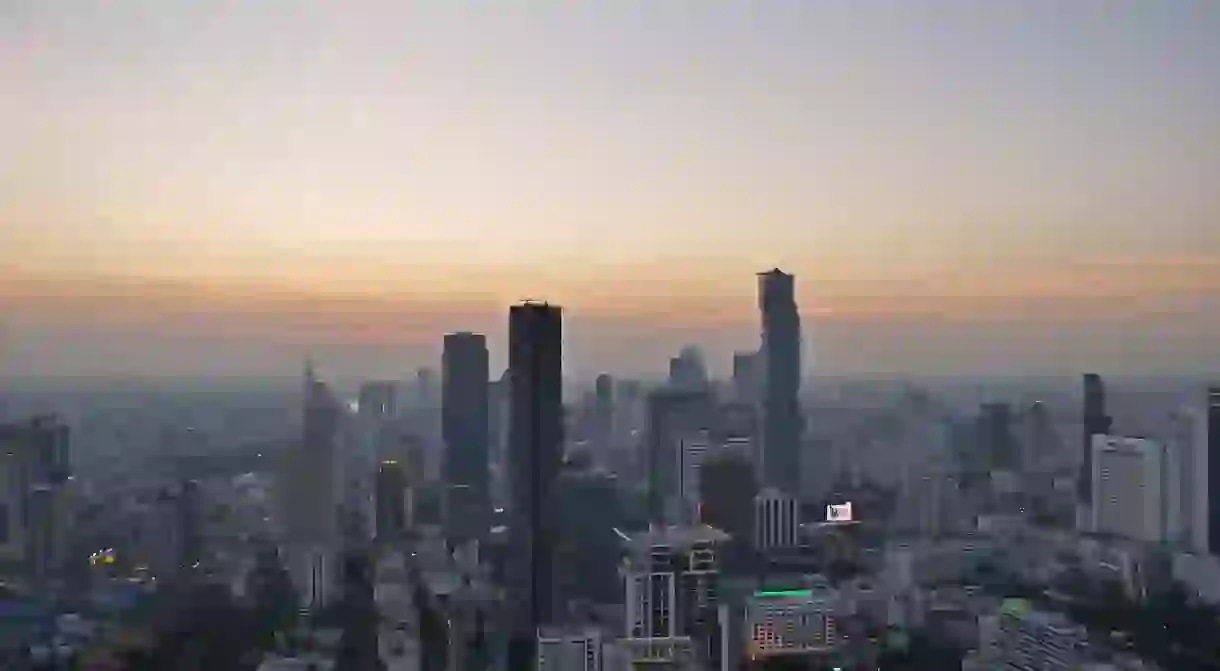The Big Move: An Expat's Guide to Living in Thailand

So after months of talk and years of dreaming about it, you’re finally considering the big move. You’re waving bye-bye to the dreary weather, dull office and the inertia of your current life at home and saying sawadee to a new, more exciting life in Thailand, full of beaches, sunshine and copious amounts of pad Thai. Well, not exactly. Thailand is a great place to live – but it’s not without its challenges. Here we explore what and where is best for you if you’re planning on moving to Thailand.
Considering becoming a beach bum?
For many, the dream of living in Thailand usually involves a paradisiacal island, a cocktail by your side, computer on your lap and the waves crashing at your feet. Appealing though this may be, for most it’s unrealistic, and more often than not, unsuited to genuine needs. Islands by definition are isolated, their shops and cafes might soon become tiresome and when rainy season comes you might wish to be anywhere else.

If you’re planning to work as a digital nomad, writing, editing or creating content online, then what you’ll need is a strong internet connection – which is something that the islands don’t have, at least not compared to the major cities. If you want to blend a beach lifestyle with a strong, reliable internet connection, then Phuket is the city for you. Though technically an island, it’s Thailand largest and most industrialised island, and so remains a popular destination for those looking to work whilst on their travels.
Depending on what you’re earning however, Phuket can be pretty pricy so another beachside option to consider is Krabi province. The gateway to islands such as Koh Lanta and Koh Phi Phi, Krabi is a lot quieter than Phuket but much, much cheaper and with download speeds that should be handy enough for whatever you’re doing. Accommodation in Krabi Town can be as much as half the price of places to stay in Phuket and, with a number of great coffee shops to choose from, you’ll have plenty of places to work from.

…or are you more of a city slicker?
If you’d prefer to live in the city and head to the beach in your free time, then there are a few places that might interest you. Bangkok is obviously one – Thailand’s capital has plenty of hip and trendy places to live, each with enough coffee shops and bars to keep you entertained whilst you’re working. It’s also a great place to meet other expats and to network, and to join in activities with them such as sports. However, Bangkok can be overwhelming, expensive and you might see your life sliding towards becoming the very thing you hoped to escape by coming here. It’s not a place for an introvert, and whilst it might be a great place to visit for shopaholics and socialites, for those who love to get in touch with nature, it leaves something to be desired. With that in mind, you might want to consider the northern highlands of Chiang Mai or Chiang Rai. Vibrant locations that are cooler in both senses of the word, Chiang Mai and Chaing Rai retain the positive trappings of city life – shopping, places to work and good internet connectivity – but are much less hectic than Bangkok and cheaper, too. There’s a great work life balance, with both being the gateways to miles upon miles of trekking routes, rolling hills and authentic Thai villages full of hill tribes.

Come prepared
Depending on what you’re doing, it might be a while before you get that first pay cheque. If you’re continuing on from your previous job in a remote role or working online, then you may get paid more frequently. However, if you’re working in a role such as a teacher, you might have to work for a month or longer until you get paid. This can be tricky when it comes to finding a place to stay, paying a deposit and a month or more’s worth of rent, so make sure you bring plenty of cash or notify your bank of your plans to leave beforehand if you’re planning on withdrawing from your bank account.

You’ll also need to research the legality of your stay in the Land of Smiles. To teach, it’s illegal to do so without a work permit and you’ll need a long visa. It can be tricky to arrange by yourself, so you should ask your school to help you prepare your documents or have an agency take care of it for you. Again, this process can run up a bill of thousands of baht, so make sure you set aside enough. To work as a digital nomad, a work permit isn’t needed but you’ll need to stay on top of your visa situation, with a popular method being to get an education visa whilst studying Thai part time and working in your free time.
Embrace the culture – and enjoy it!
You’re making a change for a reason, and always remember what drove you to do you. If you wanted to see more of the world, then there’s the whole of Thailand at your feet – you don’t have to stay cemented to one spot. If you wanted a better work/life balance, then it’s easy to find here. You might have to come out of your shell a little more, learn the language and take the rough with the smooth, but it’s worth it in time. It’s a great country to live in, and there’s a city for everyone – introverts, extroverts, nature-lovers and big city fans can all find something they want here – and they might even end up finding themselves along the way.














